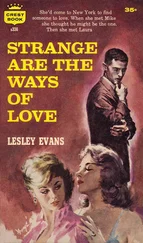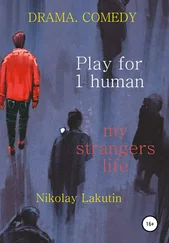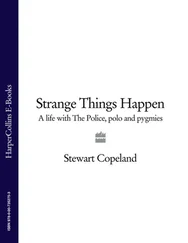Douglas Hofstadter - I Am a Strange Loop
Здесь есть возможность читать онлайн «Douglas Hofstadter - I Am a Strange Loop» весь текст электронной книги совершенно бесплатно (целиком полную версию без сокращений). В некоторых случаях можно слушать аудио, скачать через торрент в формате fb2 и присутствует краткое содержание. Жанр: Прочая документальная литература, на английском языке. Описание произведения, (предисловие) а так же отзывы посетителей доступны на портале библиотеки ЛибКат.
- Название:I Am a Strange Loop
- Автор:
- Жанр:
- Год:неизвестен
- ISBN:нет данных
- Рейтинг книги:4 / 5. Голосов: 1
-
Избранное:Добавить в избранное
- Отзывы:
-
Ваша оценка:
- 80
- 1
- 2
- 3
- 4
- 5
I Am a Strange Loop: краткое содержание, описание и аннотация
Предлагаем к чтению аннотацию, описание, краткое содержание или предисловие (зависит от того, что написал сам автор книги «I Am a Strange Loop»). Если вы не нашли необходимую информацию о книге — напишите в комментариях, мы постараемся отыскать её.
I Am a Strange Loop — читать онлайн бесплатно полную книгу (весь текст) целиком
Ниже представлен текст книги, разбитый по страницам. Система сохранения места последней прочитанной страницы, позволяет с удобством читать онлайн бесплатно книгу «I Am a Strange Loop», без необходимости каждый раз заново искать на чём Вы остановились. Поставьте закладку, и сможете в любой момент перейти на страницу, на которой закончили чтение.
Интервал:
Закладка:
What is really going on when you dream or think more than fleetingly about someone you love (whether that person died many years ago or is right now on the other end of a phone conversation with you)? In the terminology of this book, there is no ambiguity about what is going on. The symbol for that person has been activated inside your skull, lurched out of dormancy, as surely as if it had an icon that someone had double-clicked. And the moment this happens, much as with a game that has opened up on your screen, your mind starts acting differently from how it acts in a “normal” context. You have allowed yourself to be invaded by an “alien universal being”, and to some extent the alien takes charge inside your skull, starts pushing things around in its own fashion, making words, ideas, memories, and associations bubble up inside your brain that ordinarily would not do so. The activation of the symbol for the loved person swivels into action whole sets of coordinated tendencies that represent that person’s cherished style, their idiosyncratic way of being embedded in the world and looking out at it. As a consequence, during this visitation of your cranium, you will surprise yourself by coming out with different jokes from those you would normally make, seeing things in a different emotional light, making different value judgments, and so forth.
But the crux of the matter for us right now is the following question: Is your symbol for another person actually an “I”? Can that symbol have inner experiences? Or is it as unalive as is your symbol for a stick or a stone or a playground swing? I chose the example of a playground swing for a reason. The moment I suggest it to you, no matter what playground you have located it in, no matter what you imagine its seat to be made of, no matter how high you imagine the bar it is dangling from, you can see it swinging back and forth, wiggling slightly in that funny way that swings wiggle, losing energy unless pushed, and you can also hear its softly clinking chains. Though no one would call the swing itself alive, there is no doubt that its mental proxy is dancing in the seething substrate of your brain. After all, that is what a brain is made for — to be a stage for the dance of active symbols.
If you seriously believe, as I do and have been asserting for most of this book, that concepts are active symbols in a brain, and if furthermore you seriously believe that people, no less than objects, are represented by symbols in the brain (in other words, that each person that one knows is internally mirrored by a concept, albeit a very complicated one, in one’s brain), and if lastly you seriously believe that a self is also a concept, just an even more complicated one (namely, an “I”, a “personal gemma”, a rock-solid “marble”), then it is a necessary and unavoidable consequence of this set of beliefs that your brain is inhabited to varying extents by other I’s, other souls, the extent of each one depending on the degree to which you faithfully represent, and resonate with, the individual in question. I include the proviso “and resonate with” because one can’t just slip into any old soul, no more than one can slip into any old piece of clothing; some souls and some suits simply “fit” better than others do.
Chemistry and Its Lack
For me, the best illustration of the idea of better and worse fits or “resonances” between souls is musical taste. I will never forget what happened, thirty-some years ago, when a pianist friend praised Béla Bartók’s second violin concerto to the skies and insisted that I get to know it. This was an act of reciprocation for my having introduced to her, a few years earlier, one of the most stirring pieces of music I knew — Prokofiev’s third piano concerto. At that time, she had resonated to the last movement of the Prokofiev in an incredibly powerful way, a fact that seemed to signal that we were on much the same musical wavelength; therefore, I took her passionate endorsement of Bartók’s second violin concerto with great seriousness. To egg me on, she said that Bartók not only used her favorite chord from the Prokofiev over and over, but he used it better. Say no more! I instantly went out and bought a record of it. That evening, with high anticipation, I put it on and listened carefully. To my disappointment, I was utterly unaffected. This was very puzzling. I listened again. And then again. And again. And again. Over a couple of weeks, I must have listened to that highly-touted piece a dozen times if not two dozen, and yet nothing at all ever happened inside me, except that a fifteen-second section somewhere in the middle mildly engaged me. You could call this a blind spot — or a deaf spot — inside me, or else, as I would prefer, you could just say that the “fit” between my soul and Bartók’s is extremely poor. And this has been corroborated many times over with other Bartók pieces, so that now I am quite confident about what will (or rather, won’t) happen inside me when I hear Bartók. Although I like a few small pieces (based on folk songs) that he wrote, the bulk of his output doesn’t speak to me at all. And so my sense that this friend and I had a lot in common musically was greatly reduced, and in fact our friendship subsided thereafter.
After writing that paragraph, I grew curious as to whether a thirtyyear-old memory might be revealed invalid, or whether in the meantime my soul might perhaps have opened up to new musical horizons, so I went straight to my record player (yes, vinyl), put the Bartók violin concerto on once again, and listened to it carefully from beginning to end. My reaction was totally identical. To me, the piece just seems to wander and wander, never getting anywhere. Listening to it, I feel like a magnetic field bashing headlong into a superconductor — cannot penetrate even one micron! In case that’s too esoteric a metaphor, let’s just say that I’m stopped dead, right at the surface. It makes no sense at all to me; it is music written in an impenetrable idiom. It’s like looking at a book written in an alien script. You can tell there is intelligence behind it — maybe a great deal! — but you have no idea what it is saying.
I recount this rather gloomy anecdote because it stands for a thousand experiences in life, involving what, for lack of a better word, we call “chemistry” between people. There just is no chemistry between Bartók and me. I respect his intelligence, his creative drive, and his high moral standards, but I have no idea what made his heart tick. Not a clue. But I could say this of thousands of people — and then there are those for whom the reverse holds equally strongly. For instance, there is no piece of music in the world that means more to me than Prokofiev’s first violin concerto, written within just a few years of the Bartók concerto. (In fact, to my bewilderment, I have even seen the two mentioned in the same breath, as if they were cut from the same cloth. They might have some superficial textures in common here and there, but to me they are as different as Bach and Eminem.) While the Bartók rolls off of me like water off a duck’s back, the Prokofiev flows into me like an infinitely intoxicating elixir. It speaks to me, soars inside me, sets me on fire, turns up the volume of life to full blast.
I need not go on and on, because I am sure that every reader has experienced chemistries and non-chemistries of this sort — perhaps even relating to the Bartók and Prokofiev violin concertos in exactly the reverse fashion from me, but even so, the message I am trying to convey will come across loud and clear. Music seems to me to be a direct route to the heart, or between hearts — in fact, the most direct. Across-the-board alignment of musical tastes, including both loves and hates — something extremely rarely run into — is as sure a guide to affinity of souls as I have ever found. And an affinity of souls means that the people concerned can rapidly come to know each other’s essences, have great potential to live inside each other.
Читать дальшеИнтервал:
Закладка:
Похожие книги на «I Am a Strange Loop»
Представляем Вашему вниманию похожие книги на «I Am a Strange Loop» списком для выбора. Мы отобрали схожую по названию и смыслу литературу в надежде предоставить читателям больше вариантов отыскать новые, интересные, ещё непрочитанные произведения.
Обсуждение, отзывы о книге «I Am a Strange Loop» и просто собственные мнения читателей. Оставьте ваши комментарии, напишите, что Вы думаете о произведении, его смысле или главных героях. Укажите что конкретно понравилось, а что нет, и почему Вы так считаете.












